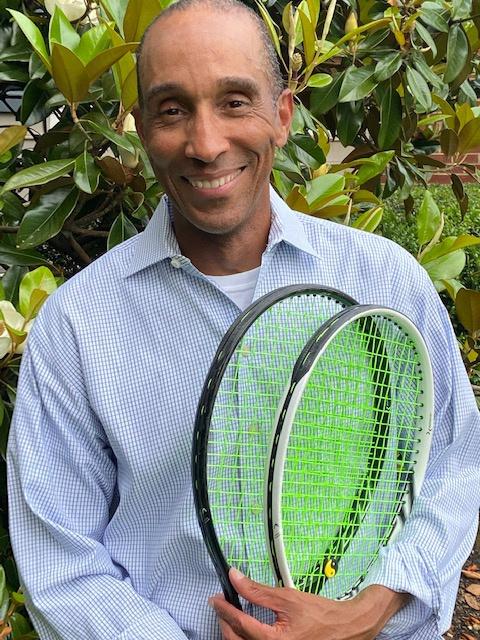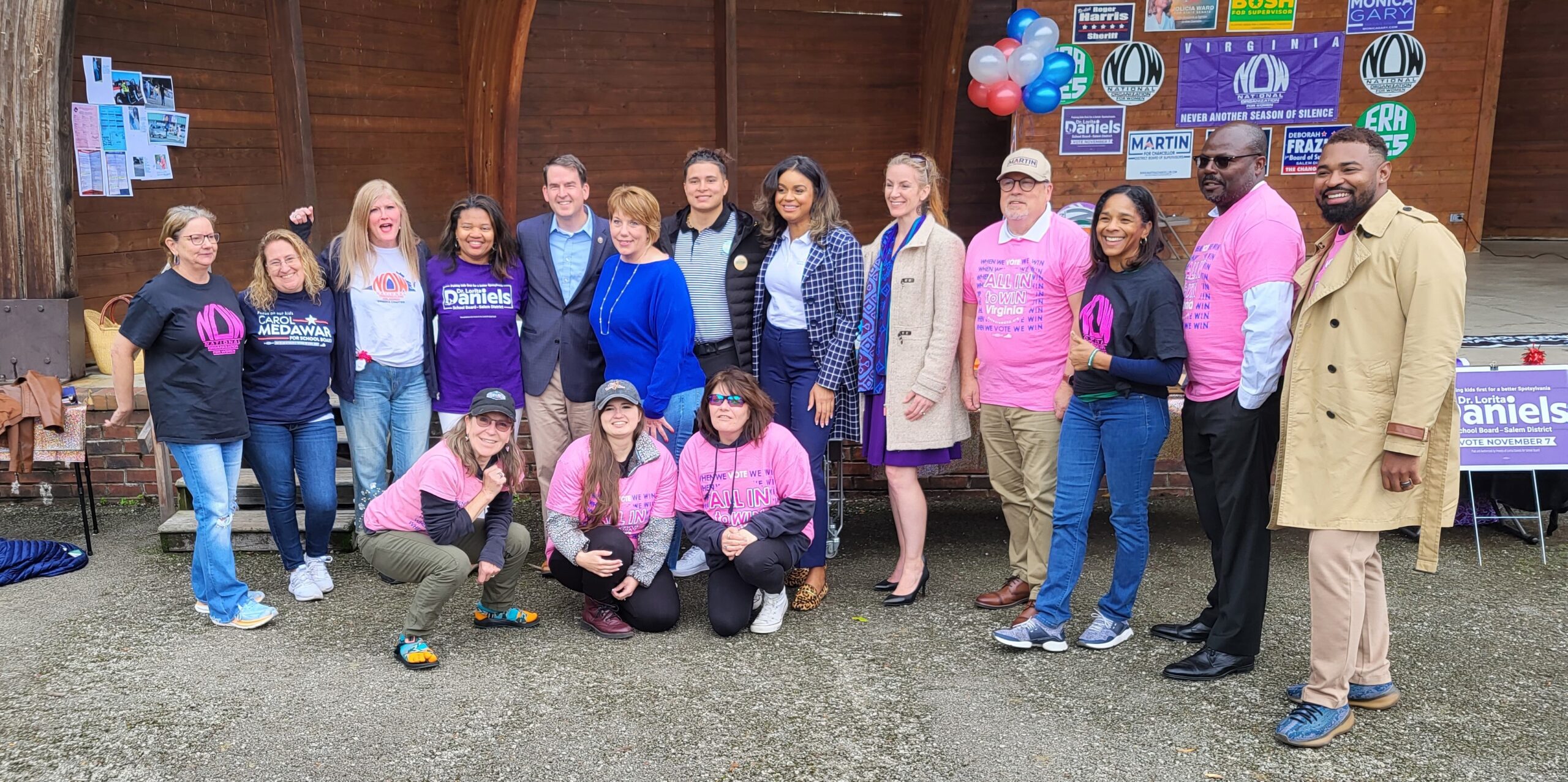
The teenagers at the Massad Y tennis facility were on their toes and constantly moving Sunday, January 7, as they are every Sunday from 10-2.
Crossing shots, lobs, slams, and screaming serves rang out side-by-side with whiffs, slips, and the unmistakable tinny sound of a poorly hit ball. Missing were hanging heads, celebrations, taunting, and self-pity.
Players come from across the region every Sunday to work with Coach Theo Marcus. Twenty-four students were at the Y on January 7 from Christopher Newport University, Courtland High School, Fredericksburg Academy, James Monroe High School, King George High School, Ni River Middle School, Riverbend High School, Stafford High School, and Virginia Commonwealth University.
A few are clearly stars in the making. Most are good enough for their high school teams. And some may never make it on the ladder—the ranking system used by many schools to determine who plays and who doesn’t.
For Coach Theo, those results are secondary to the process.
In a world where parents are shelling out thousands of dollars on coaches in hopes that their child will be the next Venus Williams, or land that all-elusive college scholarship, or leverage athletic prowess to gain admission to a competitive school, Marcus focuses on the game, and the needs of his players.
He pays for the courts each week out of his own pocket, ensuring that cost is not a burden to any family that wants to play. No small sacrifice given how expensive tennis can be to play. His only requirement to join is that players commit—through the tough times and the good—to developing their craft.
Watching Coach Theo, it’s easy to see why they gravitate to him.
In a sport that can be isolating and lonely, Coach Theo develops his players to work as a team—encouraging and instructing one another, while pushing one another to ever greater heights.
Most important, to watch what has transpired at RHS this past month is to raise a critical question. Has parents’ rights gone too far when one individual can undermine a program that is working for the vast majority of the other team members?
Riverbend Dysfunction
Coach Theo began coaching tennis at Riverbend High School in 2019. He made a three-year commitment, and laid out a program for success to then-Athletic Director Tim Stimmel.
From 2019 to 2022, Coach Theo delivered, with players winning multiple awards in year three, and some making it as far as the state finals.
More important, he brought players into the game. Coach Theo’s approach focused on development, not identifying the best and cutting the rest. He understands that in a team sport—which tennis at the high school level is—there is room for players of all types and skills.
For the team to be successful, he told the Advance, “We need to win on 4th place, 5th place, and 6th place” as much as we need to win at the top levels.
The players bought in. The best players elevated the play of the lesser players, while the lesser players brought skills the better players needed. A kid’s overall game may not be as strong as the top players’, but they show up every day, and make great strides in performance. That pushes everyone to be better. And it elevates the overall team performance.
At the end of the third year, Riverbend’s team was becoming a unit to be reckoned with. For Coach Marcus, it was time to step away.
A tennis player in his youth, Coach Theo had turned to coaching tennis to help him cope with the loss of his son in 2019. Three years on, he had fulfilled his obligation, and was in a space where he could deal with his own loss.
Circumstances brought him back to coaching, however. This time, to swimming. Rachael Adriani recognized the leadership and team-building skills Coach Theo brought and asked him to help bring those to the swim team. It took some coaxing, but he finally relented.
Marcus went to work, helping to establish the same type of environment he had for the tennis team.
With more than 45 swimmers, he brought in a new leadership model. One that focused not on the traditional honorary captains, but on pod leaders. Each leader could help carry out practice, develop the younger and less-experienced swimmers, and build a more-cohesive team.
It is a model for leadership that is used in corporate America, from which Coach Theo—a practicing and highly successful attorney—emerged.
It is a model that is regularly used in sports with larger numbers of players—like football teams and track teams.
And it is the model that one lone parent—upset that that parent’s child was not named team captain (though was named a pod leader)—was apparently determined to blow up. (See our earlier story, “Text Messages Reveal Change in Tone about Mentoring.”
That happened in December, following a contentious parent meeting the Advance previously reported on. (See also: “Miyares Asked to Intervene”)
Both Coach Theo and Coach Rachael are now gone from Riverbend (Coach Theo resigned, Coach Rachael is on administrative leave). The team itself is in disarray. And many are left wondering, how can one parent create so much turmoil?
The answer is found in “parents’ rights.”
Unintended Consequences of Parents’ Rights Policy
The program that Coach Theo was helping build on Riverbend’s swim team is the same type of program he used to develop Riverbend’s tennis team into a potent force.
For one parent of a swimmer on the swim team, however, Coach Theo wasn’t promoting excellence, but “equity.” Upset that the parent’s child was not given the honorific title of Captain, the parent apparently went on the attack—according to the text messages and the emails that the Advance has reviewed—against coaches Adriani and Theo, and the leadership program.
In text messages shared with the Advance, the parent called the approach a “social program.” And the parent pushed the idea that the coaches were pursuing not excellence, but a “weight management [program] for kids.”
The parent further stressed that the “current philosophy in place doesn’t work.”
That assessment stands in stark contrast to the success of Coach Theo’s approach with the tennis team, as well as the statements of parents the Advance has interviewed who found the program not only personally beneficial to their children as human beings, but beneficial to them as athletes.
The controversy caused by this one parent over the leadership program at the swim team was the catalyst for the meeting on December 20, at which tempers flared and the Riverbend principal was placed on administrative leave while his actions that night are under review.
This approach to dealing with disagreements is straight from the parents’ right playbook. It positions the voice of one aggrieved parent over the voices of any others.
It’s the same pattern the county previously witnessed with one parent—a book-banning crusader whose personal war against “pornography” and “grooming” led to the school district banning and removing 249 books from 37 different authors. These books were often removed over the parent review committees set up to judge the value of the challenges the parent brought.
Moreover, it’s not just a problem with conservatives, who have harnessed and pushed parents’ rights. It’s a problem with progressives, as well. From the helicopter parents of the 1970s and 1980s who insisted on mediating every school-related issue for their children, to the Tiger parents of the 1990s and 2000s who drove their children relentlessly while fighting any obstructions that arose to success—at school and into their working lives—we have seen an increasing desire on the part of parents to shield their children from struggle and blaze the pathway to success that the parent believes the child is owed.
Parents have a critical role to play in the lives of their children, but as nurturers and guides, not bulldogs attacking to ensure their child gets everything the parent believes he or she should have.
From Struggles to Leadership
Coach Theo did not have a politically connected and wealthy parent to fight his battles growing up. He had someone better.
“My mother was a hero to me,” he told the Advance. “She had Ushers Disease, leaving her hard of hearing, and with a speech impediment.”
As a Black woman standing just over five-feet tall, Coach Theo’s mother faced significant challenges in the 1960s and 1970s when he was growing up. “But she was a dragon,” he said, “who worked really hard at overcoming” the challenges life had presented her.
Coach Theo moved from Gary, Indiana, in his youth to Washington, D.C. His mother needed to escape her husband, who was battling demons of his own.
“In the early 1970s,” he said, “we came to D.C. where she was from. She had just enough eyesight left [another symptom of Usher’s disease] to land a job as a teacher.” However, even at that, she struggled to provide the basics for her family.
Dependent on food stamps and other social assistance programs, Coach Theo remembers his mother working the voting booths because they paid stipends that she would use to buy Christmas presents.
His salvation came in the form of two low-end tennis rackets that he and his brother were given.
The two would run to a nearby middle school, avoiding the kids who would bully and fight them, in order to play.
“We got down there with those two rackets and started hitting rocks to each other,” he recalls. Their first tennis ball came from the bottom of a trash can.
His mother eventually found some free tennis programs for children, and that, he says is “how I got started with tennis. We were drowning and didn’t have a shot, and tennis put a halo around that experience.”
That experience is where Coach Theo’s energy and drive comes from. When the kids on Sunday were running laps, Coach Theo, who turns 60 this year, was legging alongside them. When they were working on planks, he was down on elbows and toes doing the same.
The kids he works with now mostly don’t face the harsh realities of his childhood. However, they face their own challenges that are every bit as difficult. “Part of what I’m doing is helping them identify their why,” he says.
Lessons Learned
The situation at Riverbend does shine a light on the increasingly difficult lines that coaches and parents and student-athletes are walking.
While it appears to be true that the parent in question voluntarily gave her daughter’s phone number to Coach Theo and requested that he mentor the parent’s daughter, and that nothing in the email exchanges between Coach Theo and the student-athlete suggests anything untoward was occurring, the method of private text-messaging with students is itself fraught with difficulties.
In this case, there has been no allegation that Coach Theo was inappropriately interacting with the student-athlete. Rather, the issue that has been raised is the volume of text messages and the charge that the number was “excessive.”
But “excessive” can be hard to define. Over nearly 11 months, the number of text messages from the student to Marcus averaged about 1 per day. The number from Marcus to the student were less than one per day.
The Advance asked the Virginia High School League, the governing organization for high school athletics in the commonwealth, about guidelines for coaches and student-athletes texting.
The situation surrounding coach-student interactions at Riverbend High School, VHSL communications director Mike McCall told the Advance, “is completely a school and division issue. Those are policies established by the school board. I wish I could offer more guidance, but this issue is not a VHSL policy issue.”
The Advance reviewed the Spotsylvania School district’s 2023-2024 Parent-Student Handbook, the 2023-2024 Athletic Personnel Handbook, as well as the School County Schools’ Policy Manual and found no information that directly addresses students and coaches texting one another.
Some have argued that under no circumstances should a coach ever text a player, as they’re exposing themselves to potential liability. But in the world of high school coaching, text-messaging is pervasive.
If the district learns anything from this episode, one would hope that clearer guidance on coach, student-athlete interactions via texting would emerge.
Parents’ Rights, Programs Wronged
For now, the parent at the center of the ruckus at Riverbend has “won.” This parent’s child has been reinstated to the team—they had been suspended by Coach Adriani for a separate offense—and the two who put the new leadership model into place are gone. The Advance will be monitoring their status as the investigations unfold. The program itself, however, is in a difficult spot.
Trust has been broken, and it will take some time before it can be restored.
As for Coach Theo, he is continuing to teach the game of tennis and the many important lessons it provides, every Sunday at the Massad Y. There, an ever-growing number of kids in search of support and instruction, teamwork and a sense of personal accomplishment, continue to come.
Watching all this, one can rightly wonder. With no apparent evidence of wrong-doing at this time, is one “parents’ rights” worth the damage that has been done?
by Martin Davis
EDITOR-IN-CHIEF




